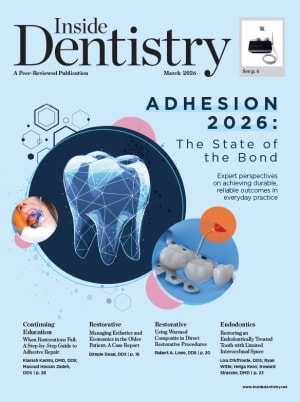Operating With Intention
When we are performing dental procedures, we are certainly operating on our patients with intention. We have treatment goals and plans to meet them in ways that result in the best outcomes. Unfortunately, dentists don’t always approach operating their practices with the same intention. Gone are the days in which you could just open up shop, start doing basic dentistry, and rely on word-of-mouth referrals to become profitable and successful. Today, dentists need to be excellent businessmen and businesswomen. If you don’t have any education in the basics of running a successful business—get it.
In the feature article of this month’s special issue on business, Roger Levin, DDS, explores six factors that are reshaping the business of dentistry. He’s spot on. Many of these factors have created problems for my practice. For example, regarding the staffing crisis, it took me more than a year to find a hygienist. With all of these factors affecting modern dentistry, if you try to operate a general practice in the way that was done in the past, you may fall victim to the pressures and struggle to maintain profitability.
In this environment, practice owners need to find strong ways to differentiate their practices from the competition. One way to do that is by offering specialized or complex procedures, such as full-mouth rehabilitations, as Mitchell Hopkins, DDS, suggests in his column. Another way to differentiate yourself is to develop a niche practice built around your own personal vision, as Sanda Moldovan, DDS, MS, CNS, suggests in hers. I agree with Levin that customer service is a key component of how practices distinguish themselves. I always find a way to get emergency patients in the same day. And if patients present with insurance that I don’t accept and can’t afford ideal treatment, I always render minimal treatment for free to at least get them out of pain. There are many different ways that you can show patients that you put their interests first.
If running a business in this environment is too much for you or you just want to focus on clinical dentistry, the rise of the DSOs may present an attractive option. If you catch your stride and develop your own vision, you can always venture into private practice in the future. I still believe that, ultimately, every dentist should aspire to own a practice. It may be a more rigorous path these days, but it is certainly still the most profitable path in dentistry.
Robert C. Margeas, DDS
Editor-in-Chief, Inside Dentistry
Private Practice • Des Moines, Iowa
Adjunct Professor
Department of Operative Dentistry
University of Iowa • Iowa City, Iowa
robert.margeas@conexiant.com
